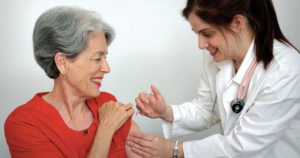Want to help your community while also helping yourself? Then consider becoming one of RSVP’s trained, certified Tai Chi: Moving for Better Balance instructors.
Training for new volunteer instructors is scheduled for Friday and Saturday, March 27 and 28. The program provides active retirees a way to serve their community by teaching the free classes while also improving their own balance and staying fit.
The two-day training, led by the Master Trainer, will be held in Camarillo, but volunteers can teach in any of Oxnard RSVP’s 12-week classes in the four west county cities served (Oxnard, Camarillo, Ventura and Pt. Hueneme). There are currently 13 classes.
After training, volunteers must practice at least 30 hours before being certified to teach; often those trained attend classes and practice together for support. Attendance at scheduled follow-up workshops will be required of volunteers.
No experience is necessary, but volunteers must be age 55 or older and make a commitment to teach at least two 12-week sessions. Since instructors work as teams, time away for illness or short vacations is possible.
For more information on the instructor training or to make an appointment to be interviewed for the volunteer position, please call 805-385-8023.
Tai Chi: Moving for Better Balance follows curriculum developed at the Oregon Research Institute (in Oregon) where studies showed improved strength and balance, increased mobility and a 55% reduced incidence of falls among seniors who participated.
Classes consist of a core eight-form routine of Yang-style Tai Chi with built-in exercise variations. It teaches participants balance skills and good body alignment by using coordinated and flowing movements. The classes are intended for adults age 60 and older who can walk easily with or without assistive devices.
RSVP is a volunteer recruitment and placement program, helping people 55 and older find volunteer positions that match their interests, talent and available time. The Oxnard RSVP has over 500 members and is sponsored by the City of Oxnard. To learn more about being an RSVP member or to discuss other volunteer opportunities, call 385-8023.







